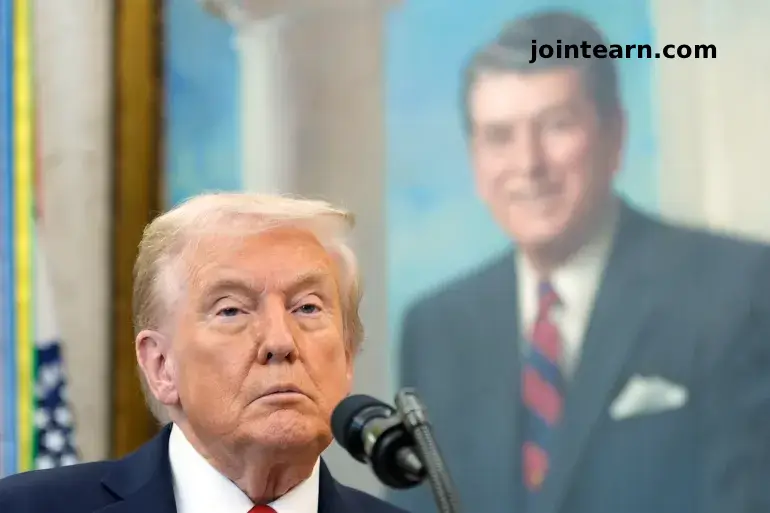
President Donald Trump recently highlighted new government guidance aimed at expanding access to in vitro fertilization (IVF) treatments, positioning himself as a champion for reproductive healthcare. The announcement, made from the Oval Office on Thursday, included a collaboration with pharmaceutical company EMD Serono to provide discounted fertility drugs through Trump’s upcoming prescription marketplace, TrumpRx.
While the initiative marks a step toward making IVF more affordable, critics argue that it falls short of Trump’s 2024 campaign promise to make IVF entirely free for Americans seeking fertility treatments.
Trump’s IVF Pledge: From Campaign Promise to Policy Action
During the 2024 presidential campaign, Donald Trump emphasized his commitment to support families struggling with infertility. “Under the Trump administration, we are going to be paying for that treatment,” he told NBC News. “Or we’re going to be mandating that the insurance company pay.”
Although the campaign promise to make IVF free remains unfulfilled, Thursday’s announcement demonstrates a government effort to make reproductive healthcare more accessible.
“Effective immediately, for the first time ever, we will make it legal for companies to offer supplemental insurance plans specifically for fertility,” Trump stated. “Americans will be able to opt in, do specialized coverage, just as they get vision and dental insurance.”
These supplemental plans, however, come with additional costs, raising questions about whether the initiative can truly make IVF affordable for all Americans, especially the 26 million who are uninsured or lack access to supplemental health benefits.
Discounted Fertility Drugs Through TrumpRx
In a major development, Trump revealed a partnership with EMD Serono, one of the world’s largest fertility drug manufacturers. Through TrumpRx, scheduled to launch in 2026, Americans will have access to discounted fertility medications, including the widely used IVF drug Gonal-F.
Trump credited his administration’s threats of tariffs on pharmaceutical companies with securing these agreements, citing previous deals with Pfizer and AstraZeneca. “They’ll bring a significant portion of their drug manufacturing back to the United States,” he said, highlighting both economic and electoral motivations.
The new measures are designed to expand access to IVF treatments while reducing out-of-pocket costs for patients seeking fertility assistance.
IVF and the Controversy in Alabama
IVF treatments involve the extraction of eggs from the ovaries, fertilization in a laboratory, and subsequent implantation or freezing for future use. These procedures have become increasingly common in the U.S., with nearly 96,000 babies born through IVF in 2023 according to the American Society for Reproductive Medicine.
However, legal challenges in some states have created uncertainty. In February 2025, the Alabama Supreme Court ruled that embryos created through IVF could be legally considered children, making the destruction of embryos a potential criminal act. This ruling temporarily halted IVF services in the state, though subsequent legislation protected providers from prosecution.
Trump referred to this controversy during his announcement, acknowledging its role in raising his awareness of IVF challenges. “I wasn’t that familiar with it,” he said. “Now I think I’ve sort of become the father.”
Trump’s Focus on the U.S. Birthrate
Beyond access and affordability, Trump framed the IVF guidance as part of a broader effort to address the declining U.S. birthrate. According to the CDC, fertility rates in the United States remained historically low at 1.6 births per woman in 2024, prompting concerns about long-term demographic trends and national security.
Health and Human Services Secretary Robert F. Kennedy Jr. described low fertility as a “national security threat,” while Dr. Mehmet Oz highlighted the potential of the new IVF initiatives to reverse the declining birth trend. “There are going to be a lot of Trump babies,” Oz said.
Criticism and Limitations
While Trump and allies celebrated the announcement, Democrats criticized it for failing to meet the campaign promise of free IVF for all families. Senator Elizabeth Warren commented on social media, “Donald Trump lied when he pledged to make IVF available to every family for FREE. It’s insulting – a broken promise.”
Additionally, questions remain regarding whether employers and insurance companies will adopt the new guidance, as most Americans receive health coverage through workplace plans. Senator Katie Britt emphasized that employers will play a key role in offering supplemental fertility coverage.
Conclusion
Trump’s recent IVF announcement represents a significant step toward making fertility treatments more accessible and affordable. By combining discounted fertility drugs with guidance encouraging supplemental insurance coverage, the administration aims to reduce barriers for couples seeking IVF.
However, the plan falls short of fulfilling the promise of free treatment, and challenges remain in ensuring widespread access for all Americans. As fertility rates continue to decline, IVF policy and coverage will remain a key topic in the national conversation about reproductive health and family planning.


Leave a Reply